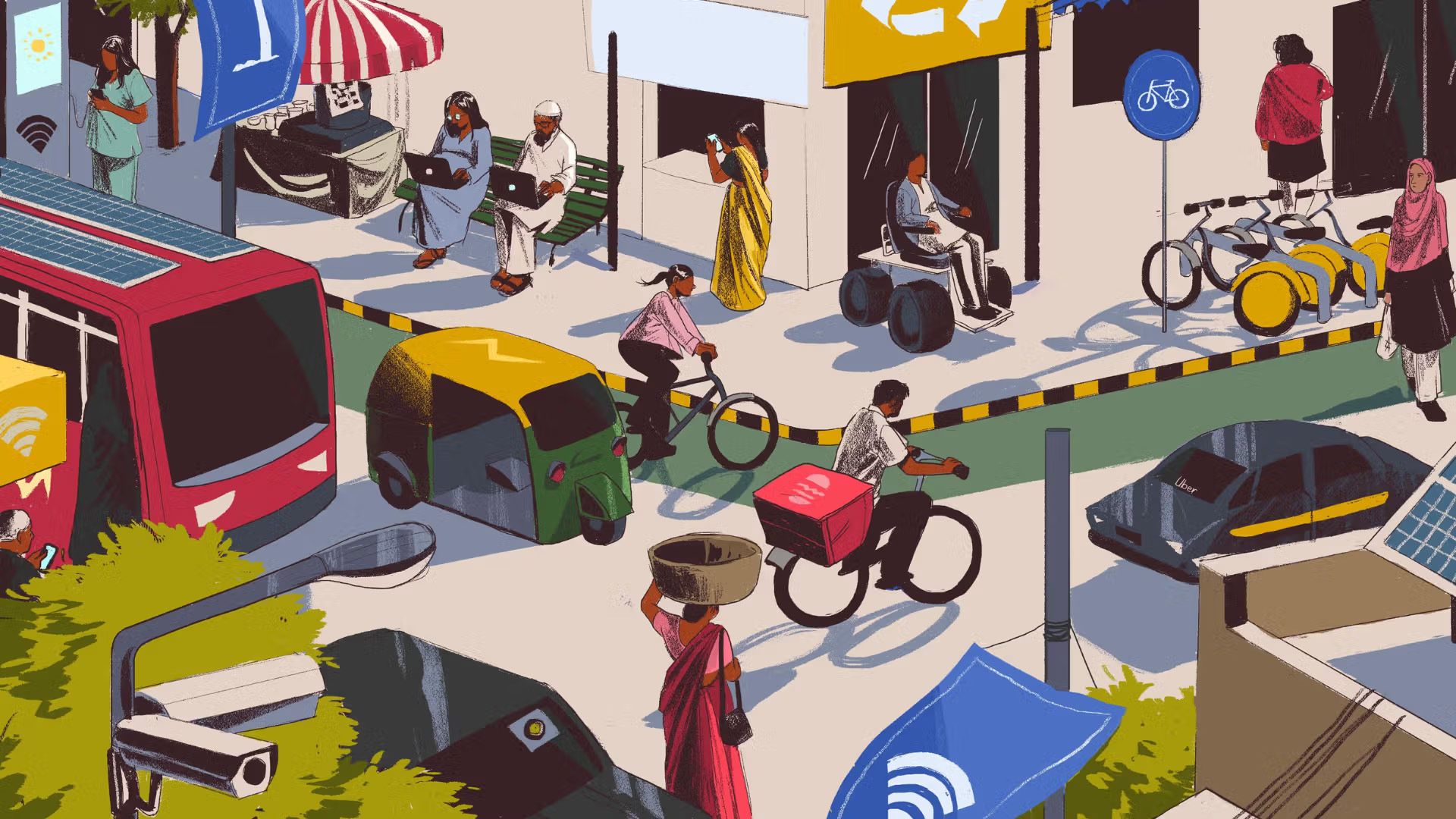
About us
Explore our values, theory of change, and how we aim to build inclusive futures—where technology serves everyone, not just a few.
While digital technologies are catalysts for positive social change, current innovation trajectories risk exacerbating global inequities, undermining democratic accountability, eroding human rights, and worsening the climate crisis.
Weak institutional capacity, deeply entrenched socio-economic inequities, and the dominance of techno-solutionist narratives amplify these harms in the Majority World.
Now more than ever, we must develop alternative imaginations of our collective futures, challenge existing power dynamics, address the unequal distribution of technology benefits and harms, and ensure that technological advances are not a force beyond democratic participation and policy steering.
Through evidence-based research, systematic foresight, and public engagement, we work to re-direct current innovation trajectories toward equitable, safe and sustainable digital futures.
Based in India and working with global partners, we have a deep understanding of the challenges of digital transformation in the Majority World. We aim to ensure that global forums on technology innovation and governance reflect the Majority World's knowledge systems, perspectives and experiences.
Digital Futures Lab was founded in 2021 by Dr. Urvashi Aneja, a leading global voice on the ethics and governance of technology.
Follow our work and receive the latest updates via the DFL newsletter.

Values and Commitments
Technology policy is largely reactive. But fixing what is already broken is not enough. Instead, we must advance a vision of our desired digital future, moving from oppositional to propositional thinking and action.
To articulate this new, positive, forward-looking vision of our digital future, we must reexamine our assumptions, draw on diverse knowledge and expertise, and create spaces for bold and disruptive thinking.
Technology is not neutral - it reflects and amplifies the values, power structures and assumptions of the societies that produce it. Our work examines how multiple axes of power and privilege impact access to and experience of technology.
We work to ensure that technology is developed, deployed, and regulated in a way that reflects feminist values of care, equity, accountability, and solidarity.
Our head office is in Goa, a small state on the western coast of India. We’re often asked why we chose to locate ourselves in Goa instead of New Delhi, the centre of political power, or Bangalore, India’s tech hub. Our answer is simple — we believe we need to distance ourselves from power to be able to think freely and independently.
Key elements of our approach
- Multidisciplinary Knowledge: We bring a multidisciplinary approach to our work, drawing on political science, sociology, anthropology and other disciplines. We believe social problems are multi-causal and deeply interconnected.
- First Principles: We rely on first principles and evidence-based social science research to craft new narratives for policy. We see norms and values at the core of socio-technical change.
- Anticipatory Knowledge: We seek to create anticipatory knowledge, through foresight methods and broad-based consultation, to develop long-term and upstream policy interventions.
- Research and Praxis: We seek to build closer linkages between researchers, industry, and policy through policy labs, capacity strengthening, and public engagement.
- Multiple Audiences: We want our work to speak to multiple audiences - business, government and civil society. Effective research communication across diverse audiences is central to our vision.
Theory of Change
We’re committed to addressing the root causes of the problems we examine, not just their symptoms. We recognise that many of today’s technological challenges are deeply embedded in unequal power structures that shape the narratives surrounding them and the actions that follow.
By interrogating these unequal power relations that drive both the development of technology and the social systems that surround it, we aim to create a more equitable, inclusive future where technology serves the needs of all people, particularly those who have been historically marginalised.
Our work already influences the policies and practices of governments, technology companies, and civil society organisations in India and globally. We are immensely proud of what we have achieved in such a short time. However, we also know that systemic change is a slow, gradual, and iterative process.
Through our work, we seek to establish the long-term conditions for change to create the knowledge base, thought leadership, capacities, and partnerships that can shape technology policy and design, and seize the strategic opportunities needed to drive systemic and sustained change.
Impact we seek
- Enabling conditions for long-term, systemic, and sustainable change: Strengthened knowledge base, thought leadership, and partnerships from the global south are mobilised to seize strategic opportunities and sustain long term momentum and capacities for change.
- Informed and sustained public dialogue: Civil society organizations and coalitions are empowered with new knowledge and a wider range of people demand change through political or consumer choices.
- Changes in policies, practices, and laws: New regulatory and policy interventions by governments and institutions, and changed industry practices, business models and design practices.
Team
Our team comprises political scientists, lawyers, sociologists, technologists and storytellers united by a shared commitment to interrogate and transform current innovation trajectories. We are immensely proud of our organisation's strong female representation and leadership.
If you share our vision and would like to join our team or collaborate on a project, we would love to hear from you. Current openings can be viewed here.
Urvashi Aneja
Aarushi Gupta
Harleen Kaur
Sasha John
Dona Mathew
Anushka Jain
Shivangi Sharan
Aayushi Vishnoi
Shivranjana Rathore
Yean Fai Liu
Abhishek A. Morajkar
Pluto & Lily
Partners
We work with a wide range of national and global partners. Past and present partners include: